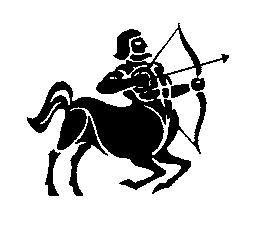| J.A.F. Appraisals & Real Estate P.O. Box 4791 Homosassa Springs, FL 34447 (352) 464-4053 appraiser@jafappraisals.com |
| GUIDE TO CLOSING COSTS CONTINUED INTEREST AND INSURANCE FEES CHARGED AT CLOSING: INTEREST. The new owner must pay interest for the days the house is owned in the first month before the regular payments begin. The fee is collected at closing. If the buyer has a $100,000 loan and pays 7.25% interest, that would amount to $19.86 a day. PREMIUM MORTGAGE INSURANCE (PMI). This applies to buyers who make a down payment of less than 20% and protects the lender if the homeowner defaults on the loan. The fee varies with the amount of the down payment. Some lenders do not require mortgage insurance but make it up in higher interest rates. Check with your lender. HAZARD AND FIRE INSURANCE. The new owner must insure the property when there is a mortgage on the property. Insurance companies require the first year�s premium in advance. The lender normally collects 14 months of payment, keeping two months of payment in escrow. Insurance rates vary greatly, get more than one quote. FLOOD INSURANCE. The same terms as above apply for homeowners in flood prone areas. TAXES. When a deal closes the seller must reimburse the buyer for the property taxes for the period of the tax year that the seller owned the house. The lender usually places that money, plus another three monthly payments, into an escrow account. This is to cover the period between the closing and the first house payment, usually two months. POINTS. Prepaid interest on a loan. Borrowers are assessed a fee of 1% of the loan, or one point, to cover the lender�s administrative costs. This is called an origination fee. In addition, borrowers can choose to pay a higher initial fee (more points), to reduce their interest rate. This is always negotiable. Closing costs can vary depending upon the lender, insurance companies, and other independent fees. These fees may vary between 1.5% to 5% of the cost of the house. Costs vary with lenders and insurance companies. Be sure to get more than one quote. FINANCING: CONVENTIONAL. Loans not backed by a government agency are called conventional loans. These may be either insured or uninsured, depending upon the loan-to-value ratio and the lender�s requirements. Conventional loans are complex because on a given day there are hundreds of possible combinations of interest rates, points, and loan terms. Most lending institutions require at least a 5% down payment. FEDERAL HOUSING ADMINISTRATION. FHA is not a lender but a government agency that insures repayment of a loan to a lender. The borrower is able to obtain a home loan with a smaller down payment and sometimes a lower interest rate. VETERAN�S ADMINISTRATION. The VA like the FHA, is not a lender but guarantees loans for those who have served in the military. Those who qualify for VA loans are eligible for 100% financing. National Guardsmen and Reservists are not eligible for VA loans. Most loans are long-term with no down payment. FARMERS HOME ADMINISTRATION. The FmHA provides financing to farmers and other qualified borrowers in rural areas. These are essentially two types: guaranteed loans made and serviced by a private lender and guaranteed by FmHA, and insured loans made and serviced by FmHA. Both types of loans must be used for the construction and repair of improvements but not for the purchase of land. The Federal Land Bank makes loans for the purchase of land, construction of improvements, and for refinancing other farm debt. These loans are restricted to agricultural property. |
| ® |
| ® |

